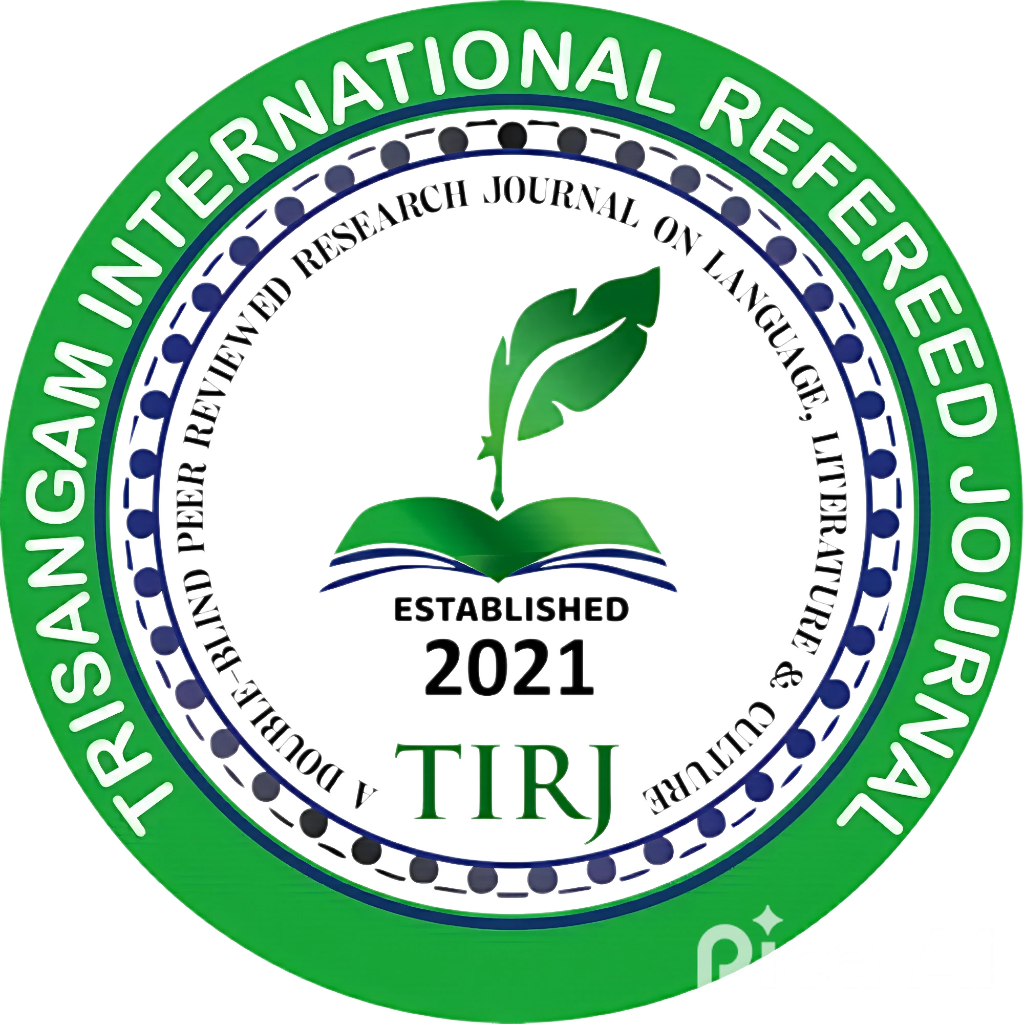Jyotirmoyee Devi's 'Epar Ganga Opar Ganga' the transformed lives of women against the backdrop of India's partition/ জ্যোতির্ময়ী দেবীর ‘এপার গঙ্গা ওপার গঙ্গা’ উপন্যাসে দেশভাগের প্রেক্ষিতে বদলে যাওয়া এক নারীর জীবন
Keywords:
- Jyotirmayee Devi,
- Epar Ganga Opar Ganga,
- Sutara,
- Religion,
- Harmony,
- Untouchability,
- Independance,
- Conflict
Abstract
Jyotirmayee Devi's novel 'Epar Ganga Opar Ganga' (1966) depicts the suffering of a woman who was a victim of the partition. The novel is divided into four parts. This novel is the story of the massacre of a Hindu family and the oppression of women in Noakhali, present-day Bangladesh. Sutara Dutta is the main character of this novel. Her entire family is oppressed by the Muslim community. Although she survives, she has to take refuge in the house of her father's colleague, school teacher Tamiz Saheb. Sutara Tamiz's uncle keeps Sutara, who was affected by the riots, as his own daughter, for about eight months and safely delivers her to her brothers in Kolkata. After reaching Kolkata, Sutara begins another struggle. The Hindu society no longer wants to accept her because she was raised in a Muslim home. Even close relatives of the family turn their backs on her. After that, Sutara studies, establishes herself and understands the world and life more clearly. She comes to know about the suffering of countless ordinary women in India as a result of the partition. At the end of the novel, the love of Pramod lights a light of hope in her life. In this way, the distraught Sutara finds the direction to return to the path of light.
Downloads
References
১. দ্রষ্টব্য: যশোধরা, বাগচী, নারীমুক্তিবাদী জ্যোতির্ময়ী দেবী, রায়চৌধুরী, সুবীর, জ্যোতির্ময়ী দেবীর রচনা সংকলন-১, দে'জ পাবলিশিং, কলকাতা, ৩য় সংস্করণ, পৃ. ৮
২. তদেব, পৃ. ৩৭১
৩. বন্দ্যোপাধ্যায়, অতীন, নীলকণ্ঠ পাখির খোঁজে, করুণা প্রকাশনী, ৩য় সংস্করণ, পৃ. ২৩৪-৩৬
৪. বন্দ্যোপাধ্যায়, সন্দীপ, দেশভাগ দেশত্যাগ, অনুষ্টুপ, জানুয়ারি, ২০১০, কলকাতা, পৃ. ৬০
৫. রায়চৌধুরী, সুবীর, জ্যোতির্ময়ী দেবীর রচনা সংকলন-১, দে'জ পাবলিশিং, কলকাতা, ৩য় সংস্করণ, পৃ. ৯৯
৬. তদেব, পৃ. ৯৯
৭. তদেব, পৃ. ৯৯
৮. তদেব, পৃ. ১০৫
৯. তদেব, পৃ. ১০৫
১০. দ্রষ্টব্য: একাত্তরের বাংলাদেশ : নারীর অবস্থান, দেশভাগ ও নারী ভাঙাদেশ নতুন গড়ন, সম্পাদনা- আশিস হীরা, গাঙচিল, আগস্ট - ২০২১, কলকাতা, পৃ. ৭৬
১১. রায়চৌধুরী, সুবীর, জ্যোতির্ময়ী দেবীর রচনা সংকলন-১, প্রাগুক্ত, পৃ. ১১১
১২. তদেব, পৃ. ১২০
১৩. তদেব, পৃ. ১২১
১৪. তদেব, পৃ. ১২৫
১৫. তদেব, পৃ. ১২৮
১৬. তদেব, পৃ. ১৩৮
১৭. তদেব, পৃ. ১৬০
১৮. দ্রষ্টব্য : ‘আমার কথা’, রায়চৌধুরী, সুবীর, জ্যোতির্ময়ী দেবীর রচনা সংকলন-১, প্রাগুক্ত, পৃ. ৯৭
১৯. রায়চৌধুরী, সুবীর, জ্যোতির্ময়ী দেবীর রচনা সংকলন-১, প্রাগুক্ত, পৃ. ১১৪
২০. তদেব, পৃ. ১৬২
২১. তদেব, পৃ. ১৮১
২২. তদেব, পৃ. ১৮৫-৮৯
২৩. বন্দ্যোপাধ্যায়, সন্দীপ, দেশভাগ দেশত্যাগ, প্রাগুক্ত, পৃ. ৭৬






